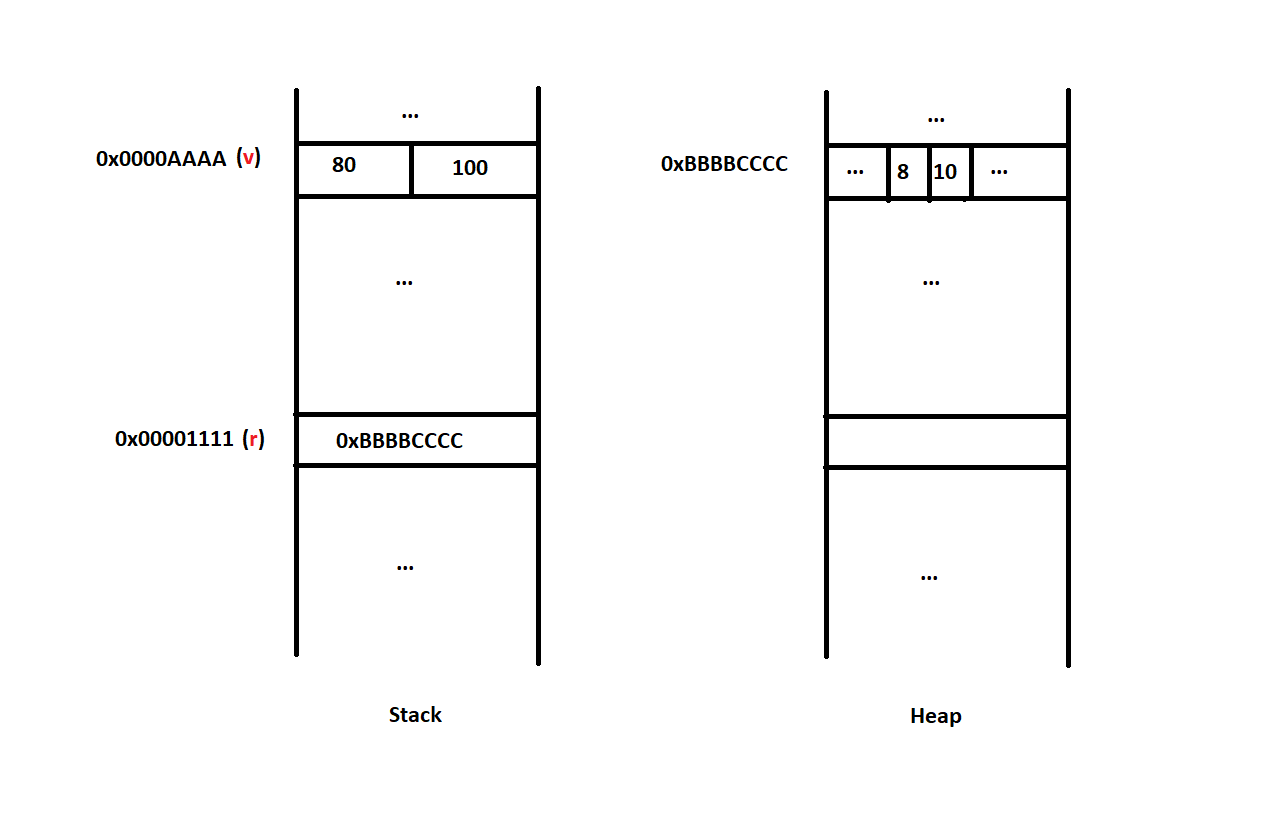Value type vs. Reference Type
Official Definition
Value types and reference types are the two main categories of C# types. A variable of a value type contains an instance of the type. This differs from a variable of a reference type, which contains a reference to an instance of the type. By default, on assignment, passing an argument to a method, and returning a method result, variable values are copied. In the case of value-type variables, the corresponding type instances are copied.
Illustrate
Let's look at the code below, what does the two variables' memory layout look like?
class RefType
{
public int A { get; set; }
int b;
public int B => b;
public void SetB(int value) => b = value;
}
struct ValType
{
public int A { get; set; }
int b;
public int B => b;
public void SetB(int value) => b = value;
}
var r = new RefType
{
A = 8,
};
r.SetB(10);
var v = new ValType
{
A = 80,
};
v.SetB(100);

Advanced
Let's take a look at the code snippet in Program.cs. The program prints the following output:
--- Original ---
Reference Obj: A = 1, B = 2
Value Obj: A = 8, B = 10--- Set value-type data by referencing data directly ---
Reference Obj: A = 11, B = 20
Mix.Reference Obj: A = 11, B = 20
Value Obj: A = 8, B = 10
Mix.Value Obj: A = 8, B = 10--- Set value-type data by modifying the variable of host ---
Value Obj: A = 8, B = 10
Mix.Value Obj: A = 8888, B = 10000--- Set value-type data by ref return ---
Value Obj: A = 8, B = 10
Mix.Value Obj: A = 9999, B = 5000
As we can see in the output results, we are even unable to modify the value directly by mix.Val.A = 888; or mix.Val.SetB(1000); because mix.Value returns a copied value and the new value copied is not defined as a variable. Then we can't set member to that new value.
If we really want to revise the data in that value-type value, we have to grant access to the variable that hosts the value. Only operations on the variable can take effects on the value. So, to make your code less error-prone and more robust, define and use immutable value types.



